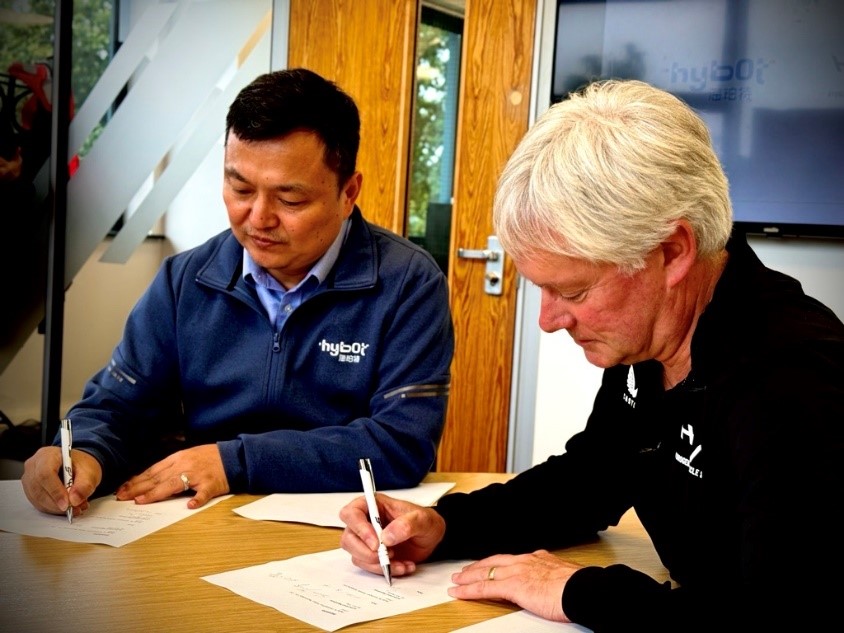Hydrogen Vehicle Systems (HVS), the UK’s first hydrogen fuel cell truck original equipment manufacturer (OEM), has recently entered into a strategic collaboration with Guangzhou Hybot Technology.
The partnership aims to promote hydrogen fuel cell trucks in the UK and EU markets, promising to revolutionize the commercial vehicle industry by developing trucks suited for various transportation scenarios. However, while the announcement is promising, it’s essential to critically assess the actual impact of this collaboration against industry standards and benchmarks.
The Memorandum of Understanding (MoU) signed between HVS and Hybot is being hailed as a significant milestone. The companies intend to leverage their respective strengths—Hybot’s expertise in hydrogen fuel cell technology and HVS’s innovative vehicle design—to develop high-performance, zero-emission commercial vehicles. The collaboration is framed as a step forward in enhancing safety, efficiency, and sustainability in the commercial vehicle sector.
However, it’s crucial to consider whether this collaboration truly sets new standards or if it merely aligns with existing industry trends. The hydrogen fuel cell truck market is increasingly competitive, with major players like Toyota and Hyundai already making significant strides. HVS and Hybot must not only match these benchmarks but exceed them to make a tangible impact.
The collaboration is described as “revolutionizing” the industry, but this claim requires a critical examination. The development of hydrogen-powered vehicles, while crucial for decarbonization, is not new. Established companies have been working on similar technologies for years. For HVS and Hybot to truly disrupt the market, their products will need to offer superior performance, cost-efficiency, and scalability compared to existing solutions.
Moreover, the collaboration’s success will depend on more than just technology development. Effective integration into supply chains, operator adoption, and regulatory approval are all critical factors. Without clear plans for these challenges, the partnership’s potential impact remains uncertain.
While the MoU marks the beginning of HVS and Hybot’s collaboration, it’s important to temper expectations. The companies are exploring further opportunities for cooperation, including potential joint ventures, research initiatives, and technology sharing. However, these plans are still in the early stages, and their outcomes are far from guaranteed.
In a rapidly evolving industry, the ability to innovate and adapt is crucial. HVS and Hybot must demonstrate that their collaboration can result in state-of-the-art vehicles and supply chain solutions that not only compete with but surpass the offerings of established competitors. Only then can this partnership be considered truly transformative.
